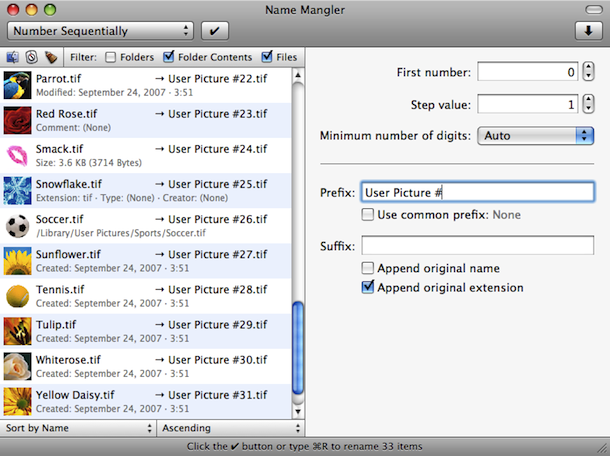

The # symbol will be replaced by a sequential number for each file name. Enter a base name for the files, including the # symbol somewhere in it. Select multiple files, right-click them, and select Rename or press F2. It works like the batch rename feature on Windows.

If you’re using a KDE desktop, the standard Dolphin file manager does have this integrated. Some Linux desktop environments come with an integrated batch-renaming tool, and some don’t. The Nautilus file manager used by Ubuntu’s Unity desktop and GNOME doesn’t have this feature built-in. RELATED: Linux Users Have a Choice: 8 Linux Desktop Environments You’ll see a preview of the resulting file name appear below the Rename dialog, so you can see exactly how the files will be named. This may sound a bit complicated, but it’s not too bad. You could also use the file’s associated date instead of a number. The number or date can appear before or after the base name. This works similar to the equivalent renaming feature on Windows. You can “format” file names, using a base name and a number.

(Be extremely careful when downloading and running such third-party software, as there’s a good chance you could end up with adware or malware.) More advanced operations will need Command Prompt commands, PowerShell cmdlets, or third-party bulk-renaming tools.

This will give all those files a much more logical name, grouping them together. The files will be renamed as My Vacation (1), My Vacation (2), and so on. Type a new “base name” for the files, such as My Vacation, and press Enter. When you’re ready, right-click a file in the list and select Rename - or just press F2. RELATED: How to Batch Rename Multiple Files in Windows Press Ctrl+A to select a folder full of files, use the mouse cursor to select a group, or hold Ctrl as you click to select and de-select files. For basic batch-renaming, begin by selecting several files in Windows Explorer or File Explorer. We’ve already covered the many ways to batch-rename files on Windows. RELATED: The Best Alternative File Managers for Windows, Mac, and Linux


 0 kommentar(er)
0 kommentar(er)
